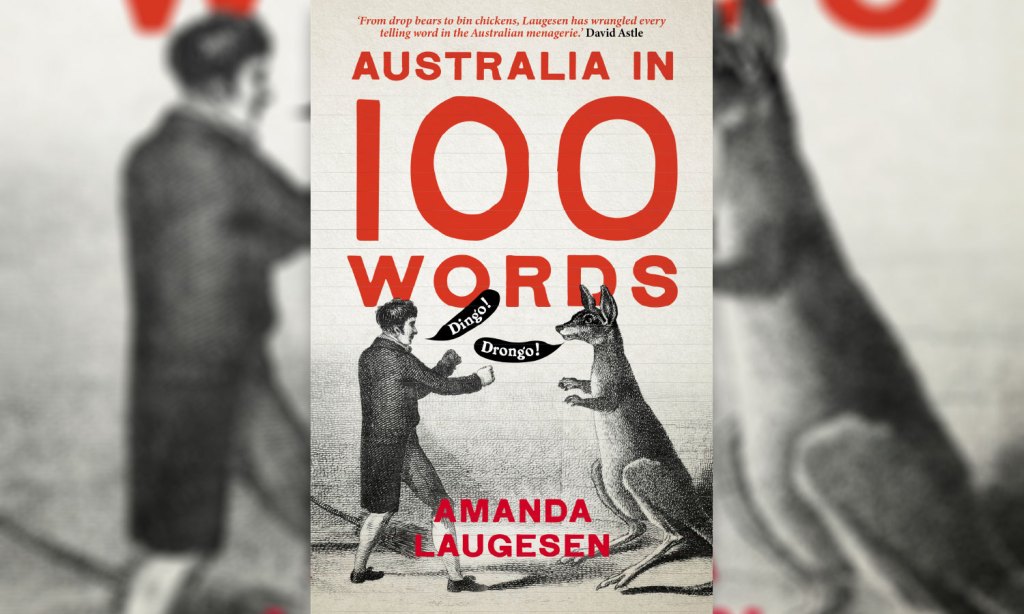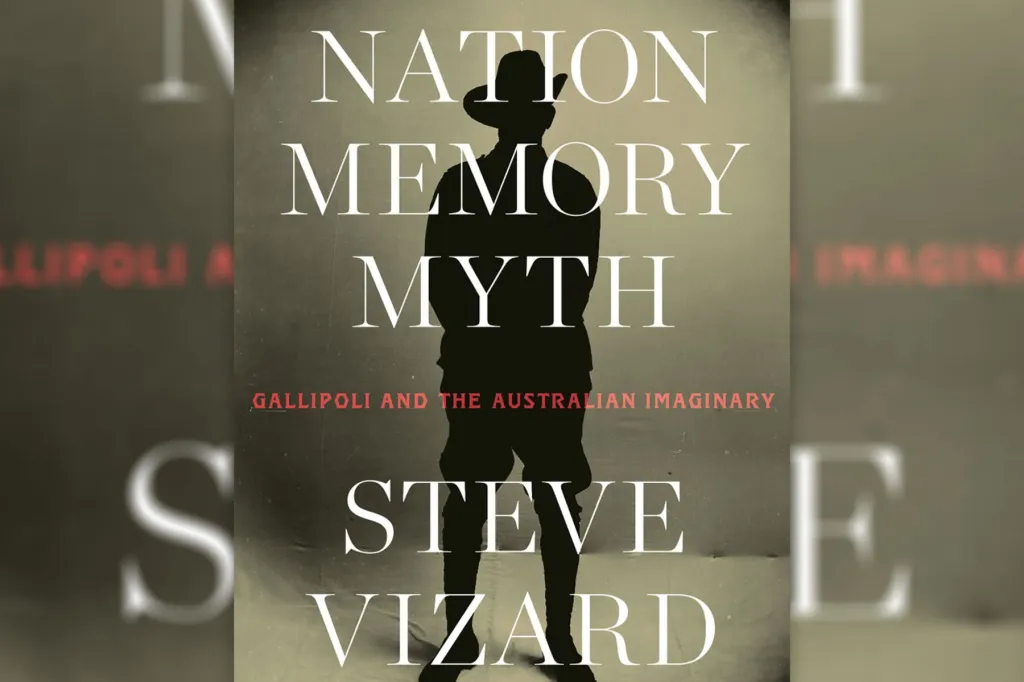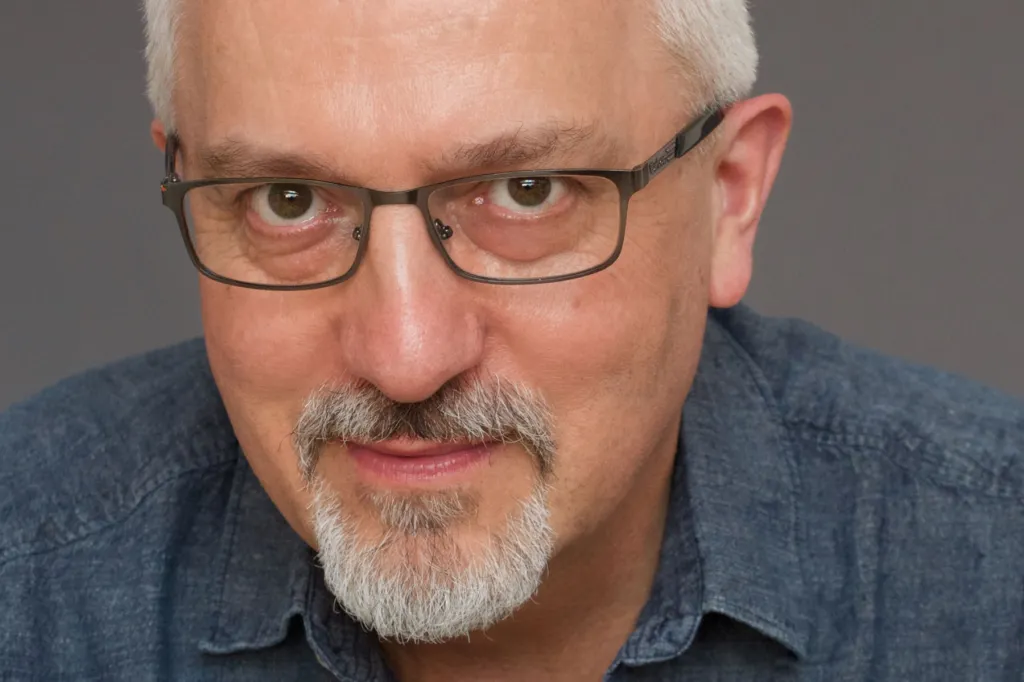It’s true blue, it’s dinky-di – it’s our history told in our lingo
A new book explores our national story, but it’s told in our words – Aussie lingo.

Fair go and don’t come the raw prawn – telling the story of Australia using Aussie lingo seems dinkum to me. And there I have managed to use several references already.
Australia in 100 Words by Amanda Laugensen is a brilliant idea. The author asked herself: what words would you select to tell the story of Australia? Perhaps you’d choose some from iconic Australianisms like “mateship”, “fair dinkum” and “bogan” or maybe you might reach for things you hear in the street like “no worries”, “yeah, nah”, “Bin chicken” or “budgie smugglers”.
Laugesen, an historian, lexicophrapher and author, reveals some of the ideas, events and values that have shaped Australia’s history by providing fascinating insight into the evolution of Australian English.
The Australian English vocabulary ranges across everything from this country’s unique flora and fauna to the many colloquial terms used every day, to the words of sports and politics, to the words “borrowed” from 300 to 700 languages and dialects spoken by the First Nations Peoples before and after colonisation.
Drawing on her many years of researching Australian words and history, and her work as chief editor of the Australian National Dictionary, Laugesen has selected 100 words and expressions that provide us with a unique way to tell Australian history.
You might like
Laugesen considers what these words can tell us about ourselves, our history and our culture. She explores both the reality of Australia’s past as well as the myths that Australians have created to reflect how we like to see ourselves. Words underpin the myths and stereotypes of Australian identity. They have also obscured harsh realities and inequalities.
“I have tried to tell as many different stories about Australia as its words can help to reveal. This has not always been easy. For example, while Australia has many male archetypes – from bushrangers to diggers – there are far fewer words that tell us about the women who have made our nation. Language often reinforces rather than subverts stereotypes,” Laugesen writes.
The book is edifying but also fun. I immediately went to words that interested me. The first was the piece on Strine, which is Australian English – a stylised, exaggerated or comic representation of Australian speech.
I spent my childhood in Hong Kong and one of the books we had on the coffee table of our house in Kowloon Tong was a book called Let’s Talk Strine, a guide to speaking Australian. It was published in 1965. It was hilarious, I thought, but I should have paid more attention to it because when we arrived back in Australia (I was 13) I had no idea what anyone was talking about. Someone said “fair dinkum” at school on my first day and I had to ask for a translation.
Subscribe for updates
Dinkum is one of the words covered in this book. There are some great expressions including Drop Bear. Beware the Drop Bear when walking in the bush, right? This is, according to the author, “a humourous name for an imaginary animal, similar to a koala, with very sharp jaws and teeth, that is said to devour tourists after dropping down on them from trees”.
Never mind the Jabberwocky … watch out for Drop Bears! It was this legend that probably inspired author Kenneth Cook (author of the Aussie classic Wake in Fright) to write his book The Killer Koala, a satirical romp. It was published in 1986. I interviewed Cook in Brisbane after its release. He was a funny bloke. He brought a large stuffed koala and a stock whip (to control it) to the interview. What a hoot.
One of the Indigenous words explored in this collection is tjukurpa, which is a complex idea related to the Dreamtime. First recorded in Australian English in 1948 it’s a word that is hard to define. It relates in part to anthropologist W.E.H. Stanner’s idea of the Dreamtime as a continuum he called Everywhen. Love that concept.
Laugesen’s essay on this word is fascinating and shows us the complexity of Aboriginal spirituality and its concepts. So, the book is, as I’ve suggested, edifying – and hugely enjoyable.
I think we should keep our version of English alive. I try to use these words whenever I can. Living overseas as a child I developed a special love of Australian English, so I applaud Amanda Laugesen’s thoughtful and entertaining exploration of our history told through, well … our lingo.
Australia in 100 Words by Amanda Laugesen, NewSouth, $32.99.
newsouthbooks.com.au

